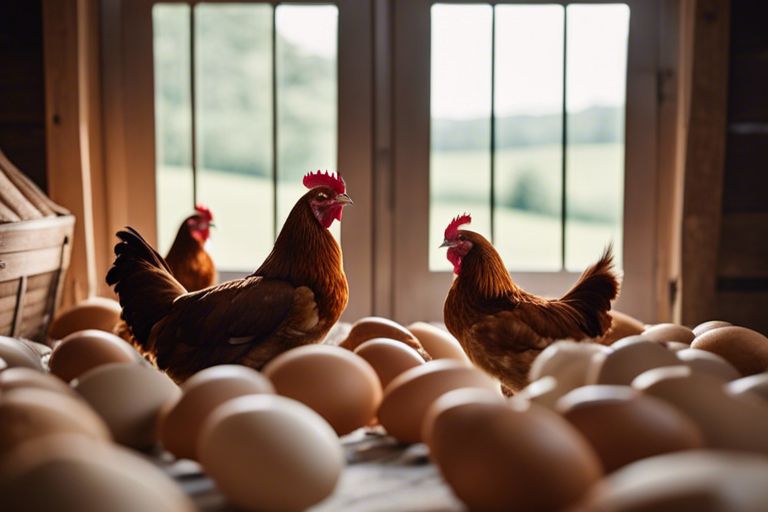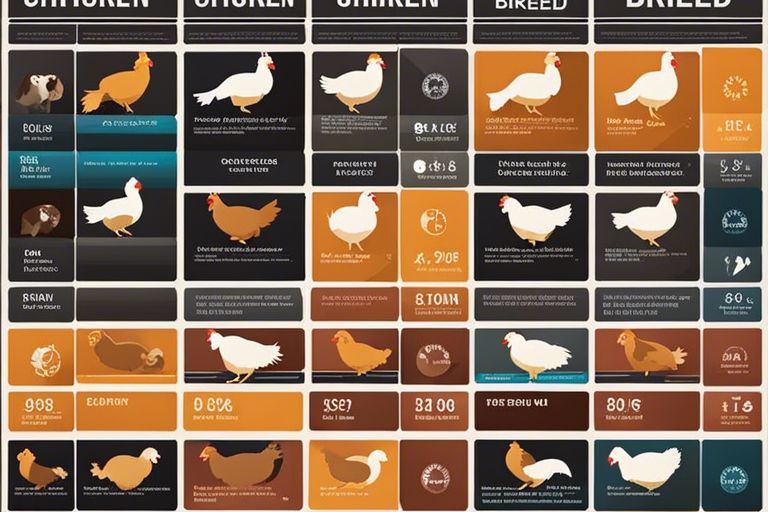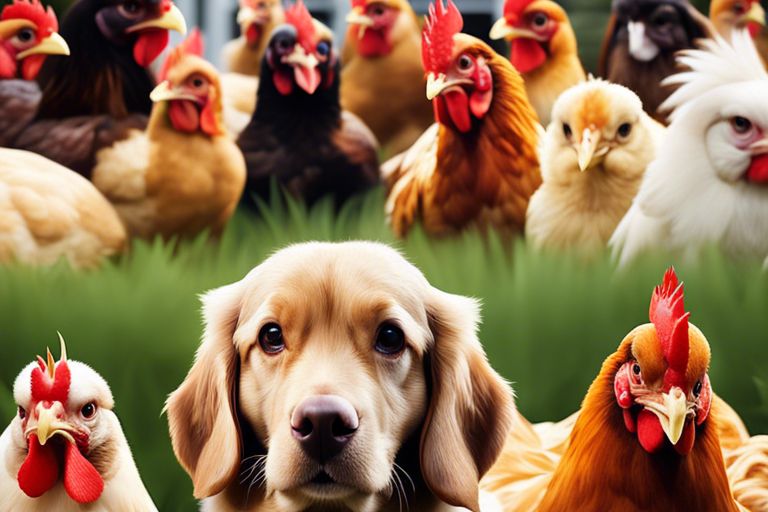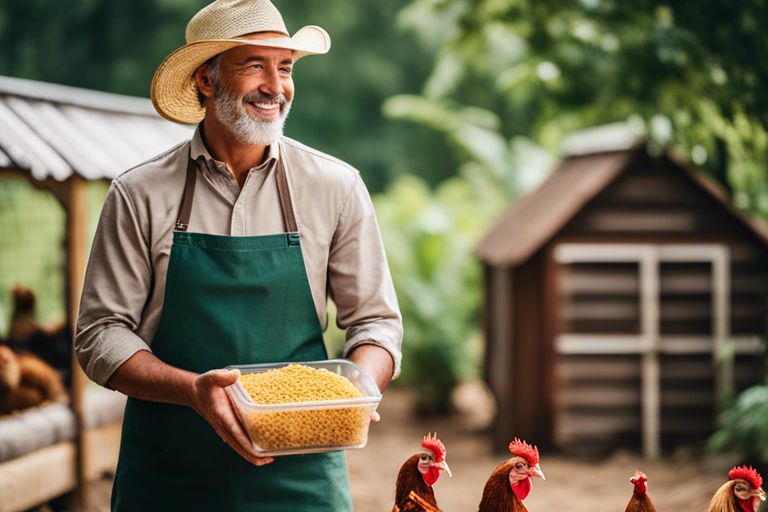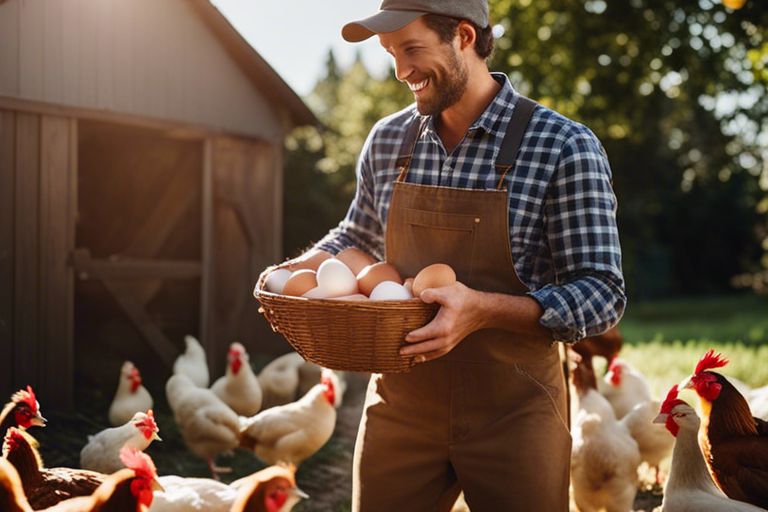You know the saying, “you are what you eat”? Well, the same can be said for the chickens that lay our breakfast eggs. If you’re looking to start your own flock for a fresh daily supply of eggs, it’s crucial to choose the right chicken breed. Whether you’re a new poultry enthusiast or a seasoned farmer, selecting the best chicken breeds for egg production is key to ensuring a bountiful yield of delicious and nutritious eggs. In this blog post, we’ll introduce you to some of the top chicken breeds known for their exceptional egg-laying abilities.
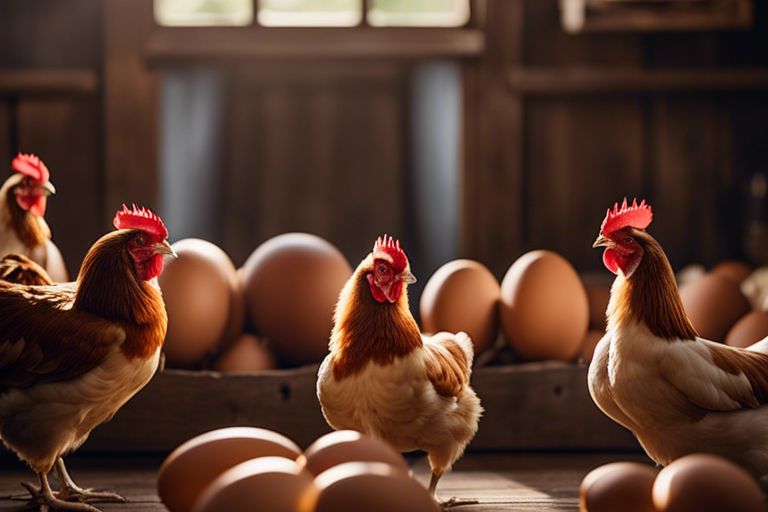
Top Chicken Breeds for Prolific Layers
White Leghorn
While White Leghorns may not be the most colorful of chickens, they are certainly one of the best egg-laying breeds available. Known for their prolific egg production, White Leghorns can lay up to 300 large white eggs per year. These chickens are also relatively low-maintenance, making them a popular choice for backyard flock owners looking for high egg yields.
Rhode Island Red
White Rhode Island Reds are another fantastic choice for those looking to maximize their egg production. These chickens are known for their friendly nature and ability to adapt to a variety of climates, making them a great option for beginner chicken keepers. With an average of 200-300 brown eggs per year, Rhode Island Reds are a reliable source of fresh eggs for any household.
Understanding the specific needs and characteristics of each chicken breed can help you choose the best fit for your flock. Whether you opt for the high-energy White Leghorn or the versatile Rhode Island Red, both breeds are sure to provide you with a steady supply of delicious, fresh eggs.
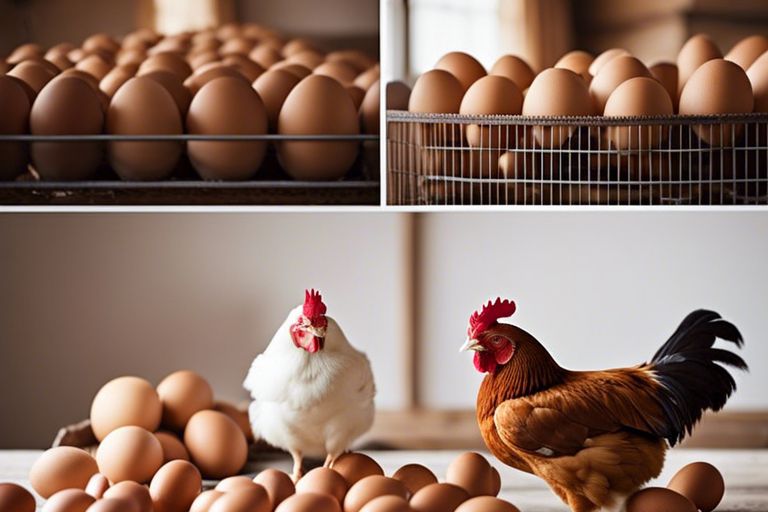
Heritage Breeds Versus Hybrid Layers
Benefits of Heritage Breeds
To preserve the genetic diversity of chickens and honor the historical significance of poultry farming, many farmers opt for heritage breeds. These breeds are often hardier and more self-sufficient, making them ideal for free-ranging operations. Additionally, heritage breeds are known for their rich, flavorful eggs which are favored by many enthusiasts for their superior taste.
Advantages of Hybrid Layers
Layers of hybrid breeds are widely favored in commercial egg production due to their exceptional egg-laying abilities. These birds have been selectively bred for high egg production rates, often laying more eggs than heritage breeds. They are efficient converters of feed to eggs, making them cost-effective for large-scale egg production operations.
Hybrid layers are bred for specific characteristics such as egg size, shell color, and disease resistance, ensuring a consistent supply of high-quality eggs throughout the year. Farmers looking to maximize egg production and profitability often choose hybrid layers for their superior performance and reliability in commercial settings.
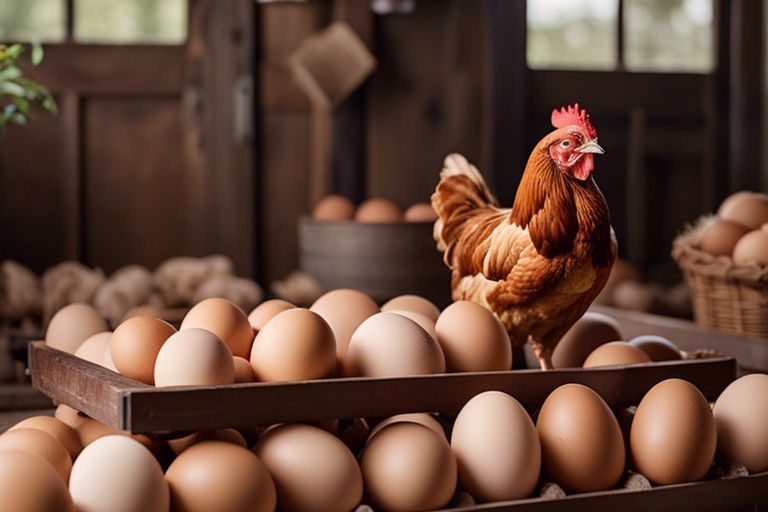
Caring for Your Egg-Laying Hens
Optimal Living Conditions
All egg-laying hens require optimal living conditions to thrive and produce high-quality eggs consistently. This includes providing a clean and spacious coop with proper ventilation, adequate lighting, and protection from predators. Hens also need access to a secure outdoor area for exercise and sunlight, which are vital for their overall health and egg production.
Diet and Nutrition for Peak Production
Caring for your egg-laying hens involves ensuring they receive a balanced diet rich in protein, vitamins, and minerals to support optimal egg production. A high-quality commercial layer feed formulated specifically for laying hens is recommended, supplemented with fresh fruits, vegetables, and grains. Additionally, providing access to clean freshwater at all times is crucial for hens to stay hydrated and maintain healthy egg production levels.
Hens, just like any other living being, require a well-balanced diet to achieve peak egg production. Protein is especially important for hens, as it is a key component in egg formation. Ensure your hens are getting enough protein from their feed, around 16-18%. A diet lacking in vital nutrients can lead to decreased egg production and poor egg quality.
Beyond the Basics: Enhancing Egg Quality
Factors Affecting Egg Quality
Your chickens’ diet plays a crucial role in determining the quality of the eggs they produce. Ensure they have access to a balanced feed rich in nutrients such as calcium and protein to support the development of strong eggshells and yolks. Stress levels can also impact egg quality, so provide a calm and comfortable environment for your hens to thrive. Lastly, genetics can influence egg production and quality, so choose breeds known for their high egg-laying capabilities.
- Opt for a balanced diet rich in calcium and protein
- Minimize stress in the chicken coop for better egg quality
- Select breeds with a reputation for high egg production
Assume that addressing these factors will result in a significant improvement in the quality of the eggs your hens produce.
Tips for Maintaining High-Quality Eggs
To maintain high-quality eggs, it is vital to collect them regularly to prevent any damage or contamination. Store the eggs properly in a cool and dry environment to extend their shelf life. Washing eggs is not recommended as it can remove the protective coating, increasing the risk of bacteria entering the egg. Instead, gently wipe off any dirt or debris right before use.
- Collect eggs daily to prevent damage and contamination
- Store eggs in a cool, dry place to maintain freshness
- Avoid washing eggs to preserve the protective coating
Basics for maintaining high-quality eggs include proper collection, storage, and handling practices to ensure a consistent supply of fresh and nutritious eggs for your consumption.
- Regularly collect eggs to prevent breakage and spoilage
- Store eggs in a cool and dry place away from strong odors
- Handle eggs with care to preserve their quality and freshness
Final Words
To wrap up, choosing the best chicken breed for egg production is vital for anyone looking to start a backyard flock. Researching and selecting breeds that are known for their prolific egg-laying abilities, such as the Rhode Island Red, Leghorn, Australorp, or ISA Brown, can ensure a steady supply of fresh eggs for you and your family. Remember to consider factors like climate, space, and your own preferences when deciding on the right breed for your flock. With the right choice of chicken breed, proper care, and a suitable environment, you can enjoy bountiful egg production from your flock for years to come.
FAQ
Q: What are the best chicken breeds for egg production?
A: The best chicken breeds for egg production include Leghorn, Rhode Island Red, Sussex, Australorp, Plymouth Rock, and Orpington.
Q: How many eggs can these breeds produce in a year?
A: On average, these breeds can produce anywhere from 250 to 300 eggs per year, with some individual hens laying even more.
Q: Do these breeds require any special care for optimal egg production?
A: While these breeds are known for their high egg production, providing them with a balanced diet, clean water, proper housing, and regular health check-ups is vital for optimal egg production.
Q: At what age do these breeds start laying eggs?
A: Most of these breeds start laying eggs around 4 to 6 months of age, depending on their individual maturity and environmental conditions.
Q: What is the average size and color of eggs produced by these breeds?
A: The eggs produced by these breeds are usually large to extra-large in size and come in a range of colors including white, brown, and even tinted hues.
Q: Are these breeds friendly and easy to handle?
A: Yes, most of these breeds are known for their docile and friendly nature, which makes them easy to handle, especially for beginners or families with children.
Q: Do these breeds do well in various climates and environments?
A: Yes, these breeds are adaptable to different climates and environments, making them suitable for backyard chicken keepers in various regions.
